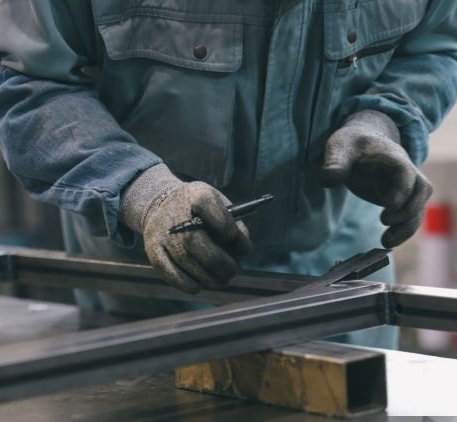
The irreplaceability of hand polishing in sheet metal manufacturing
In modern sheet metal manufacturing processes, mechanization and automation technologies are developing day by day, but manual polishing plays an irreplaceable role. This article will focus on the important role of manual polishing in sheet metal manufacturing and why it is irreplaceable.

First, hand sanding plays a critical role in sheet metal manufacturing. Although modern mechanical equipment can achieve high-precision and high-efficiency processing, in some specific scenarios, manual polishing is still required to complete fine processing and finishing work. For example, when producing precision parts or workpieces with special shapes, it is difficult for mechanical equipment to handle them in detail, but manual grinding can be adjusted and trimmed according to the actual situation to ensure that the product reaches the ideal surface quality and dimensional accuracy.
Secondly, hand polishing offers the advantages of flexibility and personalization. Since workpieces in sheet metal manufacturing vary in shape and size, mechanical equipment may not be able to meet the processing needs in all cases, while manual grinding can be adjusted and processed according to the specific requirements and characteristics of the workpiece. This flexibility and personalization advantage makes manual polishing more convenient when processing complex workpieces or non-standard workpieces, and can give full play to the advantages of artificial intelligence and experience.
In addition, hand polishing is of great aesthetic and quality significance in sheet metal manufacturing. Some high-end products or products with special requirements need to have good appearance and surface quality, and mechanical equipment may not be able to fully meet this requirement. Manual polishing can adjust the polishing method and intensity according to the characteristics and requirements of different workpieces to make the surface of the product smooth and flawless, increasing the beauty and added value of the product.
In addition, hand sanding improves flexibility and efficiency in the production process. In some small batch production or customized production scenarios, mechanical equipment may not be flexible enough, but manual polishing can be adjusted and processed according to actual needs, reducing waiting and waste during the production process, and improving production efficiency and capacity utilization.
In general, despite the continuous development of modern mechanization and automation technology, the position of manual grinding in sheet metal manufacturing is still irreplaceable. Its advantages such as flexibility, personalization, aesthetics and efficiency make manual polishing particularly important in specific scenarios. It plays an irreplaceable role in ensuring product quality, enhancing brand image and meeting customer needs.

